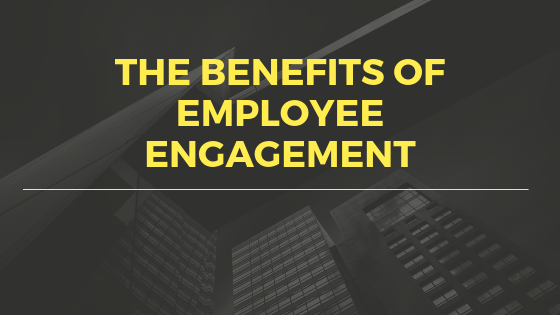When employees feel genuinely connected to their work and invested in the company’s mission, it shows. Engaged employees are more motivated and satisfied in their roles and contribute to increased productivity, better customer satisfaction, and lower turnover rates. In this article, we’ll explore the wide-ranging benefits of employee engagement and how fostering a culture of connection can lead to long-term success for both employees and organizations.
What is Employee Engagement?

Employee engagement is employees’ emotional commitment and enthusiasm towards their work, their team, and the organization they belong to. Unlike mere job satisfaction, which reflects contentment in one’s role, employee engagement is about a deeper, active connection. Engaged employees feel a sense of purpose and dedication, going beyond their job descriptions to contribute positively to the company’s success.
In practice, it is seen through behaviors such as consistent motivation, innovation, collaboration, and a genuine desire to see the organization succeed. This commitment benefits both the employee and the organization.
Top 10 Benefits of Employee Engagement

Here are the top 10 benefits of employee engagement for both employees and organizations:
Increased Productivity
Engaged employees are more invested in their tasks and take pride in their work, which naturally drives them to perform at a higher level. They are more focused, efficient, and often willing to go the extra mile. This can significantly boost overall productivity. This creates a positive feedback loop where increased productivity drives better results, leading to both individual and team accomplishments.
Enhanced Employee Retention
When employees feel connected to their roles, appreciated, and part of a supportive workplace culture, they’re less likely to seek opportunities elsewhere. High retention rates save organizations substantial time and money that would otherwise go into recruiting, hiring, and training new employees. This stability helps build a seasoned workforce that’s in sync with the company’s values and long-term goals.
Improved Workplace Morale
Engaged employees tend to feel positive about their jobs and are more likely to foster a constructive, encouraging environment. High morale within the team creates a ripple effect; motivated employees boost each other’s spirits, offer support, and maintain a healthier workplace dynamic. This culture of positivity is contagious. Thus, helping to lift the mood across the entire organization and promote a sense of unity.
Better Customer Satisfaction
Engaged employees, who are enthusiastic and committed to their roles, often go above and beyond to ensure customers have a great experience. They provide excellent service, communicate effectively, and are better able to address customer needs, which leads to higher customer satisfaction and loyalty. In turn, happy customers are more likely to return and recommend the company, contributing to long-term growth.
Higher Profitability
When employees are engaged, it leads to higher productivity, customer satisfaction, and reduced turnover, all of which positively impact the company’s bottom line. Organizations with high employee engagement tend to see better financial performance as a result of fewer expenses related to hiring and training, coupled with increased efficiency and customer retention, ultimately driving up profits.
Enhanced Innovation and Creativity
Engaged employees feel empowered to share their ideas and solutions without fear of dismissal or backlash. This open environment fosters innovation, as employees are encouraged to think outside the box and bring fresh perspectives to challenges. Such a culture of creativity can keep the organization ahead in competitive markets by continually adapting and improving.
Reduced Absenteeism
Engagement leads to higher job satisfaction, which often translates to a decrease in absenteeism. Engaged employees are more inclined to be consistent with their attendance as they find their work fulfilling and enjoyable. Lower absenteeism not only keeps productivity on track but also minimizes the disruptions caused by frequent absences, allowing teams to function smoothly and meet their goals more effectively.
Stronger Company Loyalty
Employees who are genuinely engaged feel a strong sense of loyalty to the company, which drives them to represent and support the organization positively, both internally and externally. Loyal employees are less likely to leave during challenging times and are more inclined to support the company’s mission, helping build a solid and resilient workforce that can drive long-term success.
Better Adaptability to Change
Engaged employees tend to be more receptive to change, as they are already aligned with the company’s values and objectives. When new systems, processes, or structures are introduced, these employees are more likely to embrace and adapt to them, helping the organization navigate transitions more smoothly. This adaptability ensures the company can stay relevant in an evolving market and respond efficiently to new demands.
Positive Employer Brand
Companies known for high levels of employee engagement attract top talent and establish a reputation as desirable workplaces. A strong employer brand not only makes recruitment easier but also attracts people who align with the organization’s culture and values. This reputation for being an engaging workplace can also boost employee morale, as current employees feel pride in working for a respected brand, creating a cycle of positive perception and loyalty.
Employee engagement is thus more than just a morale booster; it’s a strategic advantage. Ultimately, promotes growth, profitability, and resilience across the organization.
Tips to Maximize the Benefits of Employee Engagement
Here are some actionable tips to help maximize the benefits of employee engagement in an organization:
- Create a Clear Vision and Purpose
Employees are more engaged when they understand how their work contributes to the organization’s larger goals. Clearly communicate the company’s mission, vision, and values, and consistently link individual roles and team objectives to this purpose.
- Encourage Open Communication
Establish regular communication channels that allow employees to share their thoughts, ideas, and concerns. Encouraging open, two-way communication helps employees feel heard and valued. Implement regular feedback loops through surveys, one-on-one meetings, and team check-ins, and act on the feedback received.
- Recognize and Reward Contributions
Acknowledging employees for their hard work and accomplishments is crucial for engagement. Implement a recognition program that celebrates small and big wins, whether through verbal praise, awards, or incentives.
- Provide Opportunities for Growth and Development
Employees are more engaged when they see opportunities for career advancement. Offer training programs, workshops, and mentorships to help employees enhance their skills and knowledge. Encourage continuous learning by supporting professional development.
- Empower Employees with Autonomy
Allow employees to have a degree of control over their work by granting autonomy and trusting them to make decisions within their roles. This empowerment increases job satisfaction and accountability, as employees feel they are in charge of their responsibilities and can use their unique skills and insights effectively.
- Build Strong Leadership
Managers play a key role in shaping employee engagement. Train leaders to be supportive, approachable, and skilled in recognizing individual strengths. Leaders who actively listen, provide constructive feedback, and model positive behavior inspire employees to be more engaged and productive.
By implementing these strategies, organizations can create an environment where employees feel valued, empowered, and aligned with the company’s mission. Hence, maximizing the benefits of employee engagement.
Conclusion
In conclusion, fostering employee engagement is one of the most effective ways to build a thriving workplace. When employees feel valued, connected to the company’s purpose, and supported in their roles, they’re more likely to be productive, innovative, and loyal. Engaged employees not only contribute to a positive work culture but also drive better business results, from increased profitability to improved customer satisfaction.
By creating a supportive environment with clear goals, opportunities for growth, and recognition of contributions, organizations can unlock the full potential of their workforce, benefiting both employees and the company as a whole. Mantra Care is your go-to platform for finding the best strategies for employee engagement. Sign up today and take the first step toward better health!
A Word From MantraCare Wellness
Employee wellness programs are the key to improving employee motivation, productivity, and retention. At MantraCare Wellness, we have a team of health experts, counselors, and coaches who serve corporate employees with 10+ wellbeing programs including EAP, Employee Diabetes Reversal, Corporate MSK, PCOS, Employee Fitness, Corporate Yoga, Employee meditation, and Employee Smoking Cessation.



